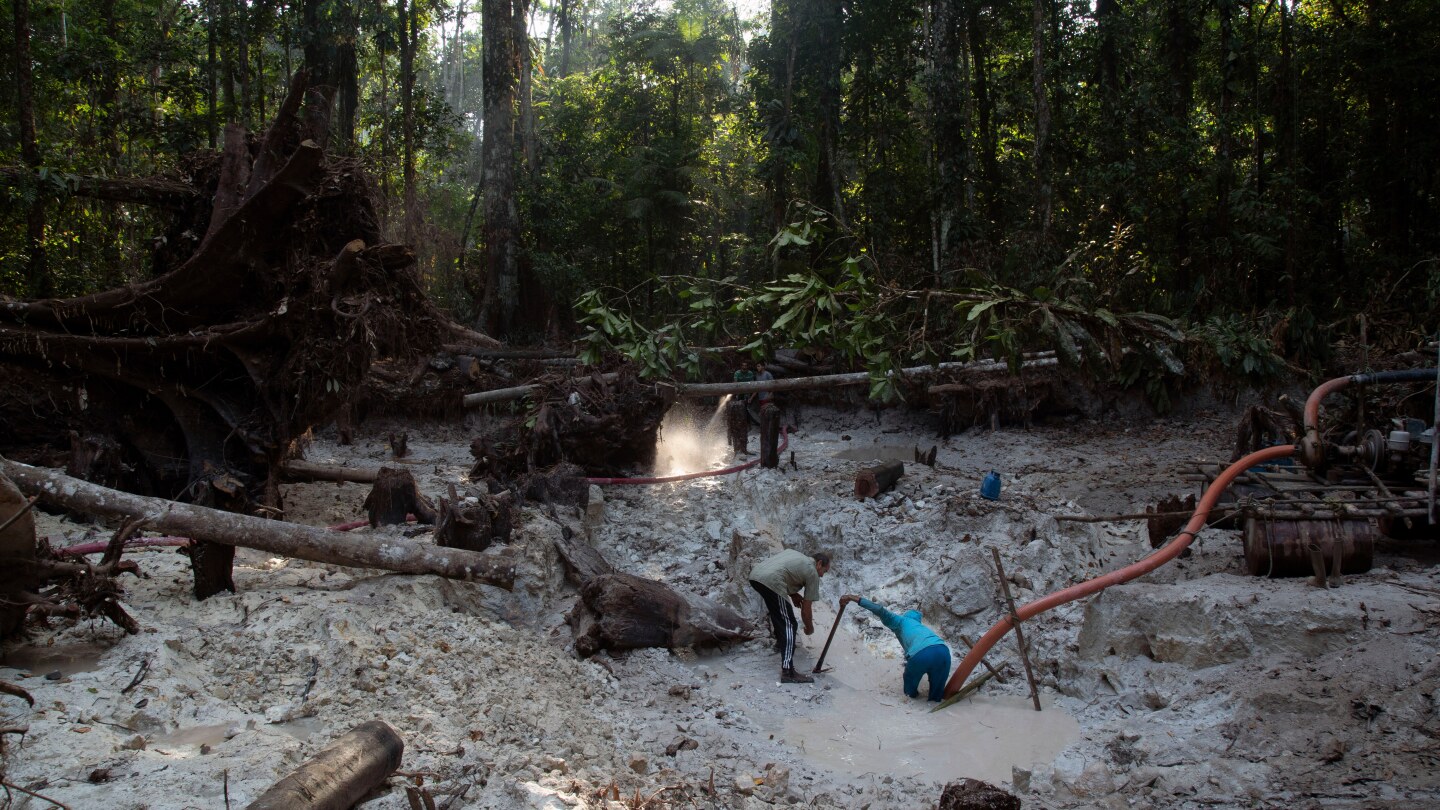Interpol-led crackdown on environmental crime nets 225 arrests in Latin America
BOGOTA, Colombia (AP) — A two-month multinational police operation spanning nine Latin American countries resulted in 225 arrests for environmental crime and hundreds of new investigations into illegal logging, wildlife trafficking and gold mining, Interpol said Friday.
The announcement marked the first public comments about the crackdown dubbed Operation Madre Tierra VII, coordinated by Interpol’s bureau for Central America.
The May-June operation was assisted by Interpol’s environmental security unit, the Paris-based international police organization said.
Interpol, which helps countries share intelligence and coordinate cross-border investigations, said the effort uncovered more than 400 cases of environmental crimes, including illegal logging, wildlife trafficking, fishing violations, illegal mining and pollution offenses.
Among the most frequent violations were 203 forestry-related crimes and 138 linked to the illegal wildlife trade, it said.
The operation also exposed transnational routes that reached as far away as Europe and Asia, revealing how organized crime networks are increasingly driving deforestation, illegal mining and the exploitation of protected species across the region.
A wide range of contraband was seized: live birds, reptiles, turtles, primates and big cats, along with 2.4 tons of shark and ray fins. Some 875 kilograms (almost 1,930 pounds) of totoaba — a critically endangered fish — and 7 kilograms (15 pounds) of dried sea cucumber.
Interpol said the seizures highlight the ongoing exploitation of protected species for lucrative international markets.
The results underscore how organized criminal networks are turning protected species and forests into trans-continental commodity chains, with profound consequences for ecosystems and climate resilience.
Interpol and partner agencies have carried out similar cross-border crackdowns in recent years, including one along the Paraguay-Brazil-Argentina border that led to 26 arrests for illegal timber trafficking.
Large quantities of illegally harvested timber, including pine, oak, and high-value cedarwood and rosewood, were also confiscated. Rosewood can fetch up to $6,000 per cubic meter on the black market, according to Interpol, underscoring the profits driving forest destruction.
Investigators identified deforestation hotspots spanning more than 50,000 hectares (193 square miles), many linked to organized criminal groups operating across continents.
In Panama, one major case uncovered large-scale illegal gold mining involving child labor, human trafficking, and mercury contamination of rivers and soil.
The operation also resulted in the seizure of weapons, vehicles, boats, and communication equipment. Authorities said additional investigations are ongoing, and a final analytical report will be presented in late November.
Oscar Soria, chief executive of The Common Initiative, an environmental think tank, told The Associated Press that the operation shows how environmental crime in Latin America “has become deeply integrated with traditional organized crime networks,” as drug-trafficking groups expand into illegal mining, logging and wildlife smuggling.
“These low-risk, high-profit crimes now provide financing for armed groups and thrive on corruption at multiple levels,” Soria said. “What’s urgently needed is a structural response — not just arrests, but stronger governance, better regional coordination and efforts to reclaim territories where criminal networks fill the void left by the state.”
The operation was part of Project GAIA, a program backed by Germany’s Environment Ministry and police from countries including Colombia, Mexico, and Costa Rica took part in the coordinated effort, Interpol said.
___
The Associated Press’ climate and environmental coverage receives financial support from multiple private foundations. AP is solely responsible for all content. Find AP’s standards for working with philanthropies, a list of supporters and funded coverage areas at AP.org.


